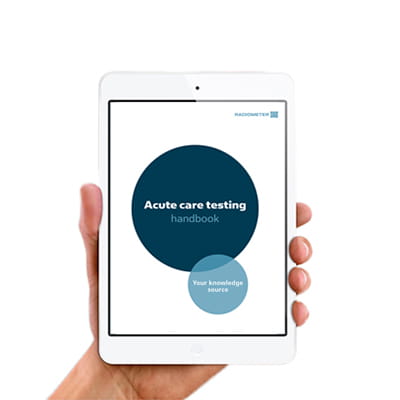Printed from acutecaretesting.org
December 2006
Blood gas analyzers provide reliable bilirubin measurement
Summarized from Borgard J-P, Szymanowicz A, Pellae I et al. Determination of total bilirubin in whole blood from neonates: results from a French multicenter study. Clin Chem and Lab Med 2006; 44: 1103-10
Modern blood gas analyzers have incorporated technology that allows spectrophotometric measurement of bilirubin concentration on the same whole-blood sample that is used to measure blood gas parameters. A recent French multicenter study confirms the reliability of this technique for measuring bilirubin during the neonatal period.
Two control sera of known bilirubin concentration (58.1 µmol/L and 273 µmol/L) were used to assess repeatability and reproducibility of the blood gas analyzer technique and conventional laboratory chemical analyzers located at four sites. The established laboratory methods are all based on the Jendrassik-Grof methodology.
At one of the four sites an additional study of reproducibility was conducted using two adult whole-blood samples (serum bilirubin concentrations 55.1 and 312.6 µmol/L). Repeatability studies revealed a coefficient of variation (CV) range of 0.67-1.86 % for blood gas analyzers compared with a range of 0.35-1.96 % for laboratory chemical analyzers.
Reproducibility studies revealed a CV range of 1.01-3.55 % for blood gas analyzers compared with 0.52-3.65 % for laboratory chemical analyzers. There was good correlation (range of correlation coefficient, r 0.969-0.994) between bilirubin results obtained using whole blood compared with plasma samples from 473 neonates. The authors of this study conclude that the blood gas analyzer technique is reliable for bilirubin measurement among neonates.
May contain information that is not supported by performance and intended use claims of Radiometer's products. See also Legal info.
Acute care testing handbook
Get the acute care testing handbook
Your practical guide to critical parameters in acute care testing.
Download now






